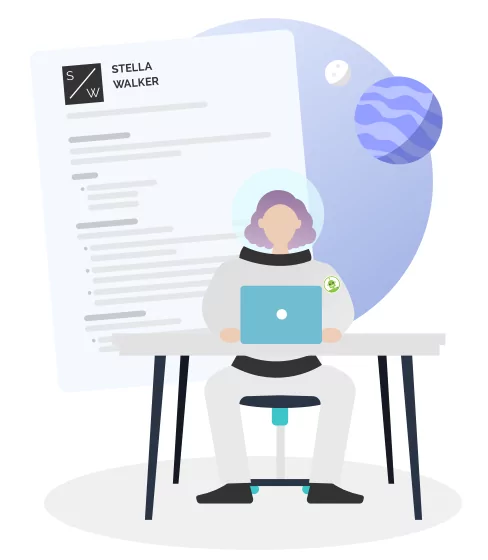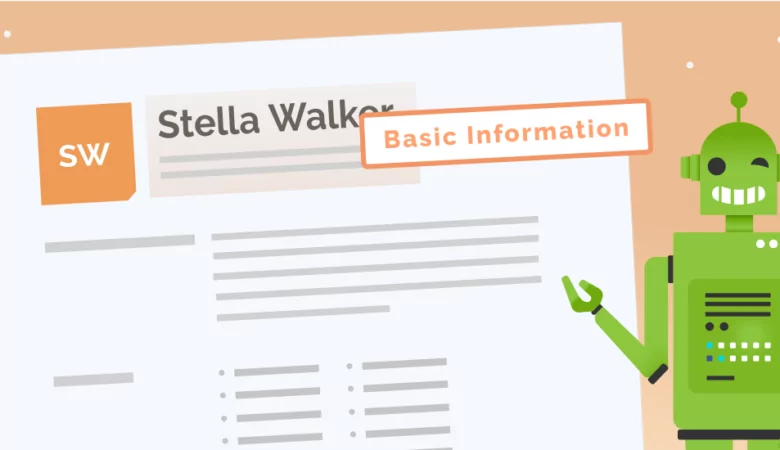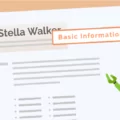Part of proper grammar in writing is using the right verb tense. Here are some tips to make sure you are using the proper resume tense before you send it to recruiters.

Resume Verb Tense Tips to Use This Year
What Tense Should You Use on a Resume?
When writing a professional resume, you need to write it in the proper verb tense. The verb tense simply refers to the time an action takes place. In a resume, this means that you will write about your work experience and education based on whether you finished them or are actively working on them. The verb tense you use in a resume will depend on what you’re mentioning at the moment. For example, when talking about past jobs, you’ll want to use past tense verbs. When talking about any current jobs you have at the time of submitting the resume, you need to use present tense verbs.

Is Using the Proper Verb Tense on a Resume Important?
Using the proper verb tense in a resume is a lot more important than many job seekers think. There are three main reasons:
- Proper grammar impresses hiring managers
- Proper verb tense conveys accurate information
- Proper verb tense makes the resume easier to read
-
Impressive grammar
Proper verb tense usage indicates that you understand basic grammar and that you thoroughly proofread your resume. Getting a sentence’s verb tense wrong is normal when first writing a resume. However, those mistakes should not make it to the final version of the resume.
Too many job seekers fail to proofread their resumes before sending them in. The recruiters notice the grammar mistakes and it leaves a bad first impression. Avoid that common pitfall while on your job search by writing your resume in the proper verb tense.
-
Accurate information
Writing in the proper verb tense will allow you to convey information accurately. Because you’ll be talking about your job experience and certifications, you need to make everything as clear as possible. You don’t want to accidentally make it sound like you’re still working on your degree when you finished it long ago.
During the interview, the hiring manager will ask you about what they interpreted while reading your resume. Having to make corrections on the spot because you made a grammar mistake is not ideal during the interviewing process.
-
Resume readability
Grammar mistakes ruin the flow of your writing. They can also be very distracting for hiring managers. You need to make your resume as easy to follow as possible and using proper verb tense helps with that.
How To Use Present Tense in a Resume
Using the present tense in a resume is all about using the proper action verbs. Simply put, action verbs are those that describe a dynamic mental or physical activity. In a resume, you’ll want to use action verbs to make your resume stand out.
Because present tense in resumes is used to describe the current responsibilities you have, you need to use action verbs to optimize your role in your current position. You can use words like:
- Motivate
- Network
- Advocate
- Organize
- Perform
- Achieve
- Lead
- Manage
How To Use Past Tense in a Resume
Past tense in a resume should be used to highlight your expertise. You’ll be talking about your past positions, so use the past tense to focus on what you learned at the job. Read the job description to tailor the resume to what the employer wants and emphasize those traits when you mention your work history. Any past extracurricular activities you participated in should be relevant to the position you’re after.
The kinds of words you use when writing about the past should also be as dynamic as the ones you used to describe the present. You can use past tense verbs like:
- Accomplished
- Directed
- Developed
- Improved
- Communicated
- Attained
- Strengthened
-
Can You Write a Resume in the Future Tense?
Using future tense in a job resume is very rare. Future tense is primarily used by students who want to be accepted in internships and have yet to complete their studies. You should only use future tense when you are writing about relevant studies or activities that will help you be more qualified for the job.
If you won’t participate in any important activities that are relevant to the position, do not use future tense. Even if you want to write about all you hope to do in the company if hired, it does not belong on the resume. The resume should only list your skills, employment timeline and education from the past or present. Any more than that should be saved for the cover letter.
FAQ: Resume Tense
If you are not currently working, your resume should be written in the past tense. There is no reason to state that you are currently unemployed because your employment timeline will highlight that on its own. Unless you are working on or studying something related to the job, past tense is the way to go.
In the cover letter, you can use past, present and future tense depending on what you’re talking about. The cover letter is a personalized letter that explains why you’re a good fit for the job. You can go into detail about your experience and what you’re currently doing to keep your skills sharp. You can even use the future tense to talk about how you plan to excel at the job should you get hired.
Yes. You can use both past and present tense in your resume. If you aren’t sure how to mix tenses in your resume without it being confusing, check out resume samples. You can use them as a guideline so you understand how to transition between the tenses effortlessly.








